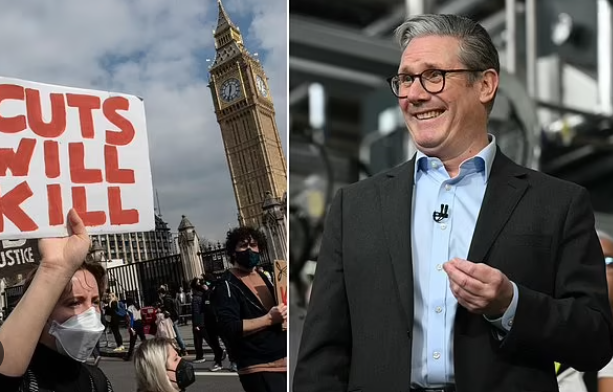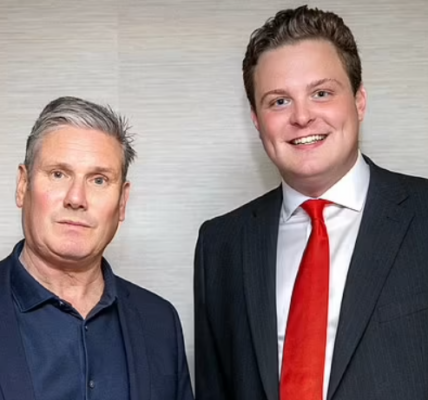Keir Starmer says people on benefits are ‘slightly fearful’ of looking for work as he defends cuts to disability cash amid Labour rebellion_nhy
Benefit recipients are often ‘slightly fearful’ of looking for work, Keir Starmer said today as he defended Labour plans to cut money for the disabled.
The Prime Minister made the remark as he highlighted how the government would help the unemployed back into work.
Labour backbenchers are on the warpath over plans to make it harder to get incapacity benefits and PIP payments, under plans designed to save the Treasury £5nb a year.
But on a visit to Yorkshire today Sir Keir pointed out that £1bn was being ploughed into help for people to get work, including a new ‘right to try’.
This will see people on benefits being allowed to take paid work without fear of their benefits being automatically stopped, even if they only last a few days or weeks.
After a visit to Holmfirth, the PM told Sky News: ‘What we’ve done is put £1bn on the projects, and the work, and the support to get people into work.
‘But also, we’ve introduced a ”right to try”, because many people who aren’t in work, who want to work, find it very difficult to make that step. They’re slightly fearful of that step.
‘So with the ‘right to try’, and the money behind them, we’re able to help them into work.’

The Prime Minister made the remark as he highlighted how the government would help the unemployed back into work.

The Government earlier this month announced a tightening of eligibility for the main disability benefit personal independence payment (Pip) and changes to the sickness element of universal credit.
The Government earlier this month announced a tightening of eligibility for the main disability benefit personal independence payment (Pip) and changes to the sickness element of universal credit.
Chancellor Rachel Reeves used her spring statement on Wednesday to also confirm that universal credit health benefits for new claimants will be halved in 2026 and then frozen until 2030.
An impact assessment estimated a £500 million cut in carers benefits by 2029/30, with around 150,000 people not receiving carer’s allowance or the carer element of universal credit as a result of the changes.
It came as new statistics showed one in four Britons now believes they are disabled, including almost half of working-age people who says they have a mental illness.
Some 16.8 million people say they have a mental or physical impairment that ’causes substantial difficulty’ in their day-to-day life, according to government data.
The astonishing figure for the year 2023-24 is up from 11.9million people – 19 per cent of the population – in 2013-14, an increase of 4.9 million people.
Analysis of the DWP data also shows that the number of people claiming a mental health disability has risen by two million people since before the pandemic, from 3.8million to 5.8 million.
Some 48 per cent of working age people said they suffered from mental problems, making it the most common form of impairment.
Rates were higher in Scotland and Wales than in England, and more women say they are disabled than men.
It examined impairments rather than diagnosed medical conditions.
As well as those working-age adults claiming mental illness, more than a third (35 per cent’ said they had problems with ‘stamina, breathing or fatigue’.
Among children, almost six-in-10 (59 per cent) had ‘social or behavioural impairments’.
Wales had the highest rate of disability at 30 per cent, ahead of Scotland (28 per cent) Northern Ireland (25 per cent) and England (24 per cent)
The area of England with the highest rate was the North East (29 per cent) followed by the East Midlands (28 per cent). The lowest rate was in London (17 per cent).
More than 30 Labour backbenchers are said to be ready to vote against plans to make it harder to claim incapacity benefits and personal independence payments (Pip).
The changes will affect almost four million people with the aim of saving £5billion for the Treasury.
MPs from the left of the party have already signalled they will vote against any chances to benefits, which came alongside a gloomy Spring Statement by Ms Reeves.




